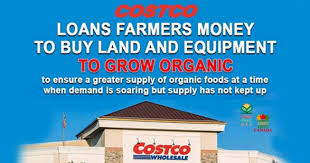
Breaking News
 BREAKING: Assault Weapons Ban Just Passed For 2026 : 10 Years Prison Who Own This!
BREAKING: Assault Weapons Ban Just Passed For 2026 : 10 Years Prison Who Own This!
 Zelensky To Trump: 'Give Me 50 Year Security Guarantee...And More Money!'
Zelensky To Trump: 'Give Me 50 Year Security Guarantee...And More Money!'
 I've Never Seen A USB-C Charger This Good!
I've Never Seen A USB-C Charger This Good!
 China Just Broke The Silver Market
China Just Broke The Silver Market
Top Tech News
 EngineAI T800: Born to Disrupt! #EngineAI #robotics #newtechnology #newproduct
EngineAI T800: Born to Disrupt! #EngineAI #robotics #newtechnology #newproduct
 This Silicon Anode Breakthrough Could Mark A Turning Point For EV Batteries [Update]
This Silicon Anode Breakthrough Could Mark A Turning Point For EV Batteries [Update]
 Travel gadget promises to dry and iron your clothes – totally hands-free
Travel gadget promises to dry and iron your clothes – totally hands-free
 Perfect Aircrete, Kitchen Ingredients.
Perfect Aircrete, Kitchen Ingredients.
 Futuristic pixel-raising display lets you feel what's onscreen
Futuristic pixel-raising display lets you feel what's onscreen
 Cutting-Edge Facility Generates Pure Water and Hydrogen Fuel from Seawater for Mere Pennies
Cutting-Edge Facility Generates Pure Water and Hydrogen Fuel from Seawater for Mere Pennies
 This tiny dev board is packed with features for ambitious makers
This tiny dev board is packed with features for ambitious makers
 Scientists Discover Gel to Regrow Tooth Enamel
Scientists Discover Gel to Regrow Tooth Enamel
 Vitamin C and Dandelion Root Killing Cancer Cells -- as Former CDC Director Calls for COVID-19...
Vitamin C and Dandelion Root Killing Cancer Cells -- as Former CDC Director Calls for COVID-19...
 Galactic Brain: US firm plans space-based data centers, power grid to challenge China
Galactic Brain: US firm plans space-based data centers, power grid to challenge China
Retail demand for organics is exploding so rapidly that Costco is actually lending money to farmers

NaturalNews) In news that will be embraced by health-conscious consumers and organic farmers alike, Costco is finding the demand for organic food to be so staggering, that it is lending money to farmers so they can grow enough organic food to keep up.
The Seattle Times reports that Costco came up with this brilliant solution in response to the growing demand by its customers for organic produce. In fact, organic food is one of the quickest growing types of food in terms of sales numbers, a strong sign that people really are starting to insist on clean food that has not been adulterated by toxic chemicals.
Costco's CEO, Craig Jelinek, said that they simply "cannot get enough organics to stay in business day in and day out."
In one of several new initiatives, the firm will lend money to San Diego's Andrew and Williamson Fresh Produce (A&W) so that they can purchase 1,200 acres of land in Baja California, along with the equipment needed to grow the food.
The idea was born when Costco's senior vice president of fresh foods, Jeff Lyons, toured the produce company. Their experience growing organic produce impressed him, but he saw that they lacked the funds to purchase additional land to expand these organic growing efforts. As part of the loan, Costco has also purchased the first rights on everything that comes off the land that meets certain requirements.
Lyons told the Seattle Times: "By helping them with financing, we got access to and purchased about 145,000 cases of organic raspberries that we normally would not have access to."
It's a win-win situation, as A&W can increase its presence and operations in the organic food industry, while Costco can boost its business. The biggest winners of all, however, will be consumers, who are increasingly clamoring for healthy, organic produce options.
This is just the latest move that shows how seriously Costco takes the health of its consumers. It has already shunned genetically modified salmon in its stores. It has also contracted with farmers in Nebraska to raise their cattle on organic fields, and it has been sourcing its wild shrimp from the Sea of Cortez, to avoid slave labor produced shrimp that comes from Thailand.
The sales numbers of food from organic farms have risen dramatically, with spending on organics enjoying a 72 percent jump since 2008. Costco is the world's second-biggest retailer. It sold around $4 billion worth of organic food last year across its 487 stores, making it the nation's top organic grocer, and giving Whole Foods a run for its money.
Pacific Foods and Nature's Path also have their own organic farms, while Whole Foods launched a $25 million increase for its Local Producer Loan Program in recent years. The Whole Foods program supports non-GMO animal feed, sustainable packaging, biodynamic farming and pollinator health. Chipotle Mexican Grill has also started funding organic farming operations.



